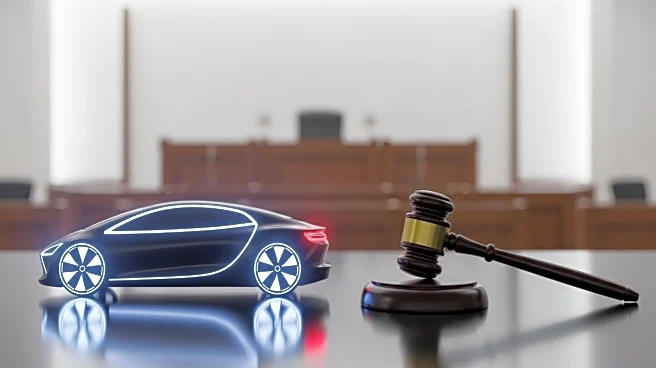What's Happening?
Tesla has filed a motion in a Miami federal court to overturn a $243 million jury award related to a fatal crash involving its Autopilot technology. The case centers around a 22-year-old student who died after being struck by a Tesla vehicle equipped with Autopilot features. The jury found the driver primarily responsible but also held Tesla accountable due to alleged faults in its technology. Tesla argues that the jury was misled by the plaintiff's lawyers, who introduced prejudicial evidence suggesting Tesla had withheld crucial video and data. The company contends that the verdict could stifle innovation and harm road safety by penalizing manufacturers for introducing new safety features.
Why It's Important?
The outcome of this case could have significant implications for the automotive industry, particularly for companies developing self-driving technologies. If the verdict stands, it may set a precedent for holding manufacturers liable for accidents involving autonomous features, even when driver error is involved. This could lead to increased legal risks and costs for carmakers, potentially slowing the advancement of self-driving technology. Tesla's argument highlights concerns about the balance between innovation and safety, as well as the legal responsibilities of manufacturers in the era of autonomous vehicles.
What's Next?
Tesla has requested a new trial or a reduction in the award amount. The court's decision could influence future litigation involving autonomous vehicle technology. If Tesla's motion is successful, it may encourage other manufacturers to pursue similar legal strategies in cases involving self-driving features. Conversely, if the award is upheld, it could prompt carmakers to reassess their liability strategies and the marketing of autonomous technologies. The case also draws attention to regulatory scrutiny, as Tesla faces challenges from European and U.S. regulators over the naming and functionality of its Autopilot system.
Beyond the Headlines
The case raises ethical questions about the marketing and deployment of autonomous technologies. Tesla's use of terms like 'Autopilot' has been criticized for potentially misleading consumers about the capabilities of its systems. This highlights the need for clear communication and responsible marketing practices in the tech industry. Additionally, the case underscores the importance of regulatory oversight in ensuring that emerging technologies are safe and reliable for public use.










